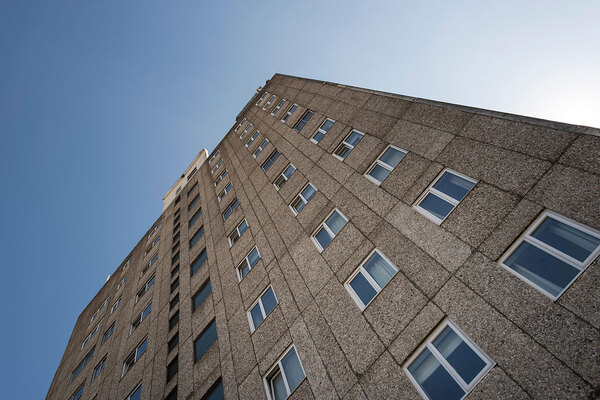Platform cuts housebuilding target after surplus drops by nearly a quarter
Midlands giant Platform has become the latest housing association to cuts its housebuilding plans, after its annual surplus dropped nearly a quarter.
The 46,000-home landlord said it was now aiming for its annual completions to reach a “steady output” of 1,600 in 2025, down from its target of delivering 2,000 homes a year by 2023/24.
In its most recent year to the end of March 2022, Platform’s completions rose to 1,171 homes up from 909 the previous year, but missed its target.
Gerraint Oakley, Platform’s executive director of growth and development, told Social Housing: “Unfortunately we were subject to numerous delays and stoppages in the planning system. Combined with the impact of Covid on the returning workforce, which led to a severe shortage of labour, we weren’t quite able to meet our initial targets."
Looking ahead, he said: "Economic conditions continue to have an impact on materials and supply chain and we’re looking at what action we can take to prevent further delays."
But he added: "I’m still very confident we can reach our targets of delivering almost 9,000 homes in the next five years as we have been working hard researching more modern methods of construction and finding more land-led opportunities that give us more control over the speed and quality that we deliver.”
The group said its housebuilding programme had also been hit by the impact of Brexit.
Platform joins other big groups cutting their development plans because of financial pressures. Last year, L&Q said it was reducing its housebuilding target by 70 per cent, partly due to fire safety costs.
Of the new homes Platform built in its latest year, 236 (20 per cent) were built for social rent, 478 (41 per cent) for affordable rent, 429 (37 per cent) for shared ownership, 12 (one per cent) for rent-to-buy and 16 for other tenures. No homes were built for outright sale, Platform said.
The group expects to build between 1,100 and 1,200 homes in the year to March 2023.
Platform has also scaled back another target. It hopes to bring its energy performance certificate (EPC) ratings on its homes to band C and above by 2030 – later than its earlier expectations of 2028.
The group said it cut its homebuilding and energy performance targets after facing economic headwinds, combined with wanting to maintain strong credit metrics.
Platform reported a post-tax surplus of £42.9m in the year to the end of March 2022, compared to £56m the year before. Its surplus was affected by inflation, while a shortage of labour for maintenance work drove costs up.
On an operating basis, Platform’s surplus fell by 11.2 per cent, to £101.2m.
The group’s turnover rose by 10 per cent to £296.9m, compared to £269.9m the year before. This was helped by a “strong sales pipeline and robust housing market” and increasing shared ownership sales.
Platform’s shared ownership sales increased from 408 to 563 and the proportion of these sales as part of turnover rose to 16.4 per cent, compared to 11.9 per cent the previous year.
However, this larger proportion of shared ownership sales affected operating margins, because of the relatively low margins from the tenure, the group said.
On social housing lettings, the group’s income rose four per cent to 234.6m – accounting for 79 per cent of overall revenue. Its margin on social housing lettings fell to 35.2 per cent, compared to 42.9 per cent the previous year.
Tenant arrears fell to 2.4 per cent, compared to 2.7 per cent the year before.
Platform had 524 voids at the end of the year, compared to 422 in March 2021. “The number of properties becoming void and the time to carry out void works have both come under pressure due to Brexit and COVID-19 during the year,” it said.
Gearing rose from 41.9 per cent to 42.3 per cent.
Elizabeth Froude, Platform’s chief executive, described the results as reflecting a “good out-turn in a difficult environment”.
“We close the year in a strong and stable position in spite of a number of economic pressures and one-off costs, which have had an adverse impact on our year-on-year performance,” she said.
“Our core business is delivering good surpluses and cash generation, and our sales team has continued to maintain a high level of reservations for any units not sold at the end of the year.”
She added: “As we close a very variable year in terms of operating environment, we, like many others, are dealing with a number of challenges, and whilst clearing maintenance backlogs, are also managing increasingly difficult supply chains and cost increases for our future property investment.
“We are maintaining tight cost control on overhead costs to protect our strong financial credit metrics.”
On 31 March 2022, Platform’s net debt reached £1.16bn, up from £1.09bn at the same point in 2021.
Platform’s net debt comprised £882m in bond issues, £80m in private placements and £490m in term loan and revolving credit facilities.
RELATED








